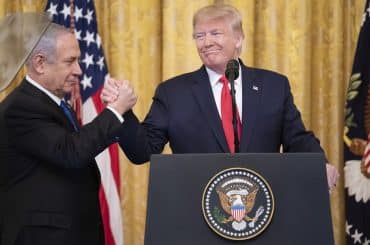The 2010 World Expo, opening May 1st in Shanghai, will be Israel’s first foray into the World’s Fair fray. The Ministry of Foreign Affairs is pulling out all the stops with a $6 million, 2000 square meter Israel Pavilion, featuring an "orchard" with talking trees apparently conversational in both English and Cantonese. Be sure to watch the Israel Pavilion video, replete with dramatic orchestral music, an aerial view of Jerusalem’s Old City, and scientists doing high-tech things with lasers (!). Given that his picture is engraved on the wall, one wonders how Albert Einstein, proponent of a bi-national state much like contemporaries Hannah Arendt and Martin Buber, would feel about the Jewish state claiming him as their own.
In " Kosher Chinese," Tablet’s groan-inducing politics section offers a look at the Israel Pavilion and the Sino-Semite “burgeoning bilateral relationship.” The article reads as vintage Israeli state-building mythology, as if writer Matthew Fishbane found the piece in a time capsule sealed half a century ago:
With Israel in the news all the time, [Rabbi] Greenberg says, the Chinese often ask him: “You are such a small nation. How do you do that?” He says they want to know because they like to learn from the success of others and then copy it. “We are admiring your ability to build a country from scratch,” a Chinese government official once told the rabbi, seemingly oblivious to any ominous undertones. “For we are building a country from scratch, too.”
This is some seriously retro Zionism in which Israel is "in the news all the time" not because of settlement construction, human rights abuses, or war crimes–but because of all of its "success" at "build[ing] a country from scratch." As for 1948, the New Historians conclude that half of Mandatory Palestine’s indigenous population was driven out and half of its villages destroyed–"ominous undertones" is certainly one way to gloss over Israel’s original sin of Palestinian displacement.
Let’s not forget what Israel’s presence at the Expo is all about: “the Image of Israel,’ our branding,” Jackie Eldan, the Israeli consul in Shanghai, tells Tablet. The goal of the Foreign Ministry’s massive Israel "branding" effort, of course, is to curb criticism of Israeli apartheid and the BDS movement.
Tablet explains this new hasbara frontier is opening up for Zionism because of a budding relationship between Israel and China, forged through "cultural exchange based on shared values of prosperity, education, diligence, and tribalism, set in national historical narratives that span four millennia." This is a bit like saying China and Israel became friends because their narrow-minded nationalisms have the same birthday. ("Tribalism,” a friend remarked, “wasn’t that the value the Axis Powers shared too? Racism is what real friendship is all about.")
Good thing for Zionism, Fishbane writes that Chinese people conveniently live in a vacuum:
Notice how "Jew" is conflated with "Israeli," how it is implied that the world has less than a "positive image" of the state of Israel because of "prejudice" (instead of foreign and domestic policy), how a self-congratulating nod is made toward Jewish smarts and wealth–the successful assimilation of American Jews. Tellingly, no actual Chinese people are interviewed or even represented. Instead, we get American and Israeli Jews in China explaining what they think Chinese people think about Jews and Israel. I would be very surprised if anyone could procure proto-Zionists in China. But that’s beside the point: the frontier is a place where one people projects their own desires onto another; perhaps we’re seeing the symptoms of a broader anxiety that the hasbara is not working on Jews–that there are possibly cracks in the Zionist dream. Indeed, the dreamers themselves are having to conjure a new set of unlikely converts, just to reassure the rest of the tribe.
Let’s see, what has been in the news lately? US-Israel relations seemingly on the rocks, and so American Jews are promised a new hasbara frontier, a magical place called China, Tablet fantasizes, where someone will finally dream again of an "empty" desert made to bloom. It is there that the Zionist imagination can take hold once more–this time, to extend the logic of the fantasy, in the minds of over a billion people who appreciate the wonders of drip irrigation but exist outside of history. But there is no such place.


